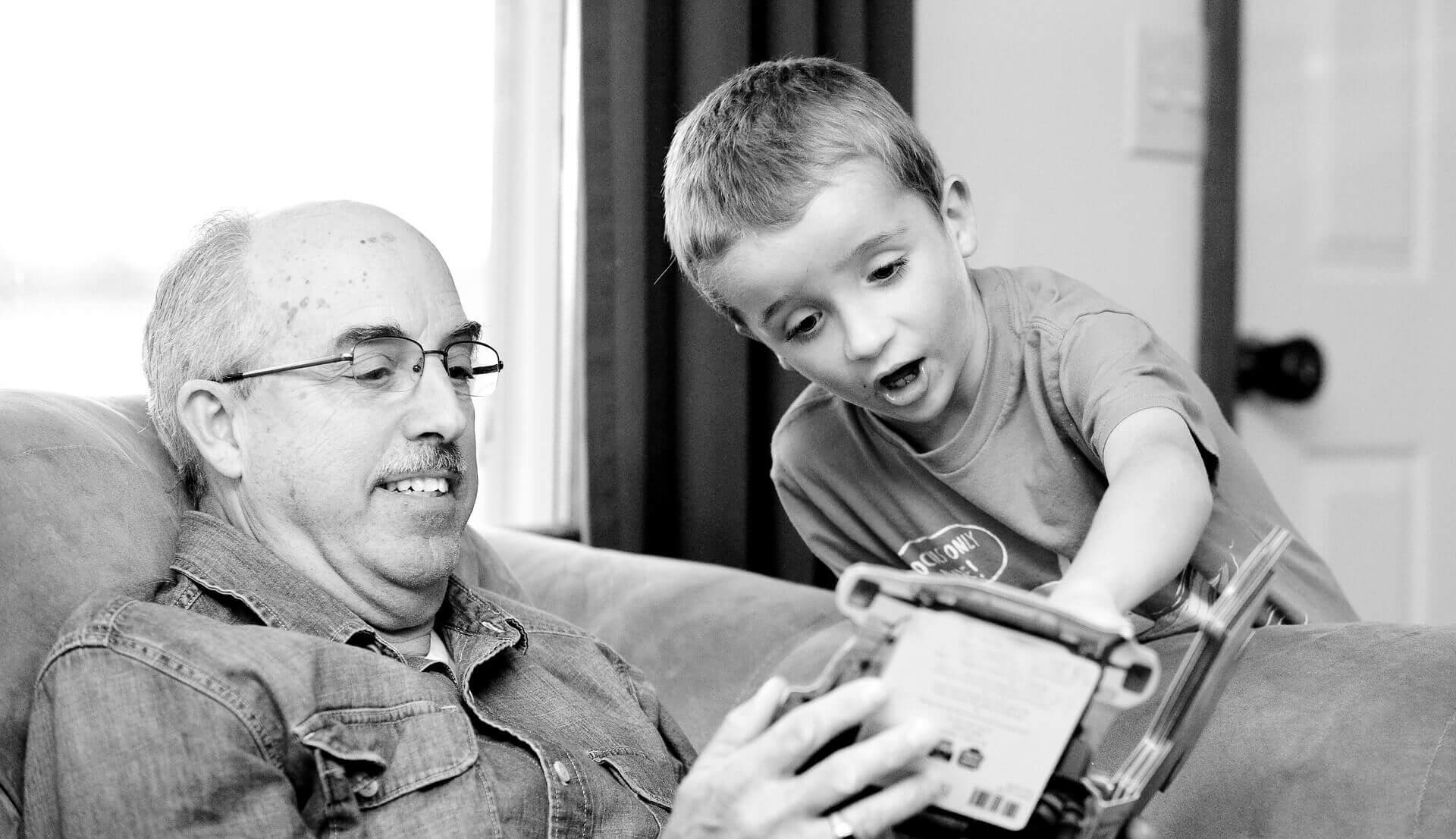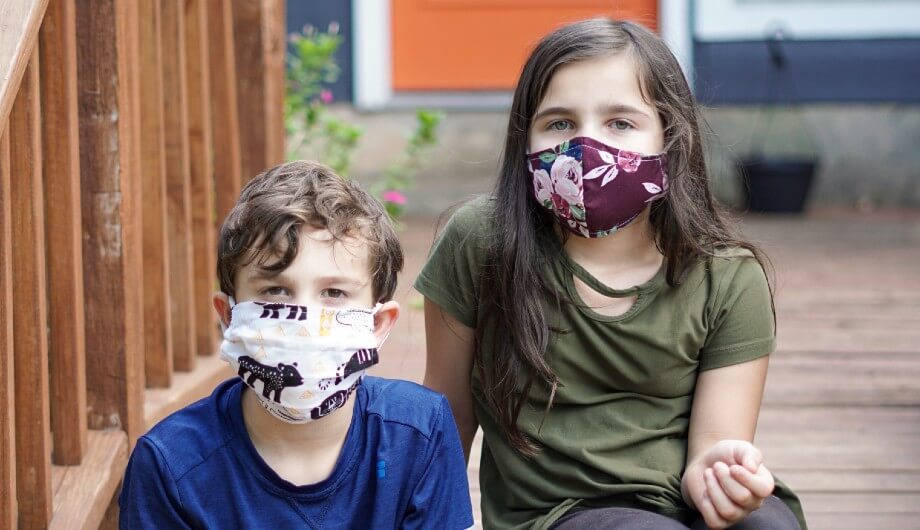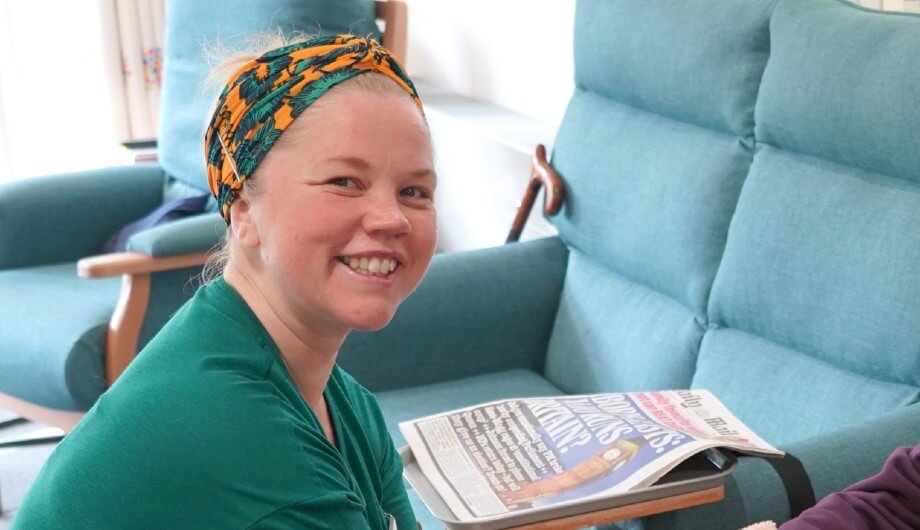The idea of talking to kids about death can make us freeze up. We might worry about not knowing what to say, how to broach difficult topics, or what reaction to expect.
But the more kids understand about death, and the more they feel able to talk about their feelings, the better equipped they are to deal with bereavement in future.
If you’re looking for guidance on starting a conversation with kids about death and dying, here are a few pointers you might find helpful.
Start early
Whether or not a child has personally experienced bereavement, they will have heard about death in stories or cartoons, from their friends, or perhaps experience the death of a pet. Helping kids to understand death before it affects their lives and to communicate their feelings will help prepare children to cope better when someone close to them dies.
Using simple examples can help to spark conversations about what death is and the way people feel about it – for example, if a houseplant dies, this could be a good opportunity to talk with your child about what death means in a concrete sense.
Be open
It’s often tempting to brush off children’s questions about death in order to protect them from it, but this won’t help when they are faced by bereavements in their own lives. Making it a taboo subject only makes it scarier and reinforces the idea for kids that they have to deal with what’s happening and how they’re feeling by themselves.
If you’re grieving, your child will probably pick up that something is amiss, no matter how normal you try to act. Instead of pretending things are fine, it’s worth explaining to your child what you’re feeling and why in an age-appropriate way. As well as helping them understand, this helps build up their emotional vocabulary and communicate their own feelings better.
Be open to answering questions as honestly as possible. Listening to the questions children ask about death and picking up on the things they say are an important way to gauge how much they’ve understood.
Whatever your beliefs, you could choose to tell your child that different people have different ideas about life after death; chances are, they will encounter a range of other people’s opinions and reactions as they go through life, especially following a bereavement, and knowing that everyone thinks differently might make this easier to deal with.
Be clear
How children will understand death depends on their stage of development, and each child is different in their reaction.
Under fives typically don’t understand that death is permanent, or what it entails. Instead of using figures of speech about ‘sleep’ or ‘gone away’, which children might take literally, talk concretely about what death means in practical terms. Try to answer children’s questions honestly. It’s okay to gently explain the person who has died can’t come back again.
Children, in particular when they’re younger, tend to see the world as all being connected to them. This can sometimes mean they think bad things that happen are their fault. It’s so important to listen to a child who feels this. Give simple explanations of what has happened and lots of reassurance that nothing they said or did made it happen.
You might need to repeat the conversation – maybe your child will ask about it again; if they don’t, it’s sometimes worth bringing it up again at appropriate times to check their understanding, but don’t force conversations. Make sure you go at the child’s pace.
Between 6 and 12, children know about death but they may not always understand emotions linked to this. By 8 or 9, they may start to understand death in the way that adults do but may still hope that if they are very good, the person who has died may come back.
Teenagers are old enough to understand that death means a major change or loss in their life. They may cope in ways that are difficult for you to deal with. Some may refuse to talk, some may become closer. Some may express anger about what’s happened, or guilt about how they have acted. They may feel bad about spending time with their friends. There is no wrong or right way to feel at this time, they need to know it is okay and normal if their feelings change a lot. Encourage them to talk to someone they trust, give them space to themselves when they need it, include them as much as they want to be included as an adult.
Regardless of their age, children might not always react how you expect. Being approachable and non-judgemental, not having expectations for how they should feel, and making sure they have the basic facts that they can process on their own are important in helping them to work through the bereavement.
Ways to help
- Using books or stories to talk about what happened
- Art is a wonderful and personal way of expressing emotions – help children be creative
- Routine is helpful – encourage to keep up with school work, usual activities and friendships, maintain your usual boundaries as much as possible
- Let them know it is okay to enjoy themselves, and let them know it is okay to be sad too
- Give them small tasks to do let them feel helpful
- Writing letters, stories, journals, poems and songs are a helpful way of expressing feelings
- Explain situation to school, nursery, college, and parents of a few close friends who can offer support too.
- Creating a memory box before or after a bereavement is a special way to keep memories alive. Ideas for a memory box could include: a special film enjoyed together, photos, letters, poems, small gifts, a lock of hair, pictures and cards, favourite music, favourite perfume/aftershave, a piece of jewellery, tickets from events attended together, something hand written, a favourite recipe
- Remember it is OKAY for you to become tearful or upset when having difficult conversations. It can help children to see that sometimes adults cry too.
Resources
Stories can be a helpful way for children to better understand and process bereavement. You might like to take a look at our list of books for helping you talk to children about death and dying.
You might like to take a look at Hospiscare patient Kirsty’s story, where she explains how she talked to her daughter about her terminal illness.
Dying Matters has compiled a list of useful resources for talking to kids about death and dying that you may find helpful.




